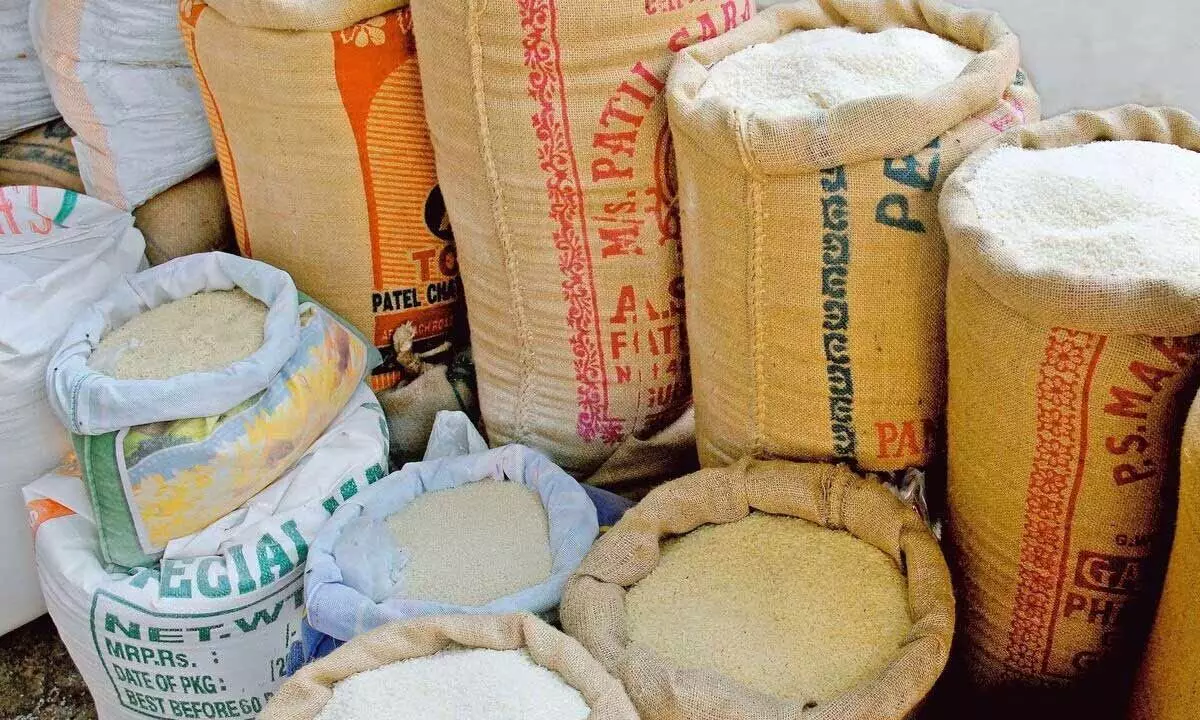Rice exports banned not to stir global pot

The International Monetary Fund has said it would “encourage” India to remove restrictions on export of a certain category of rice, which, it said, would have an impact on global inflation. Our government has a very good reason to ban the export of non-basmati white rice to other countries.
The International Monetary Fund has said it would “encourage” India to remove restrictions on export of a certain category of rice, which, it said, would have an impact on global inflation. Our government has a very good reason to ban the export of non-basmati white rice to other countries. This has nothing to do with the economies of the world or business strategies. This measure adopted by the Indian government is purely based on domestic compulsions and reasons.
India has had an erratic monsoon season and due to other factors, too, Indian rice stock position within the country is also not so comfortable. It is not that there are shortages as of now, but if we continue to export rice without a watch on the global markets and movements, we soon would be left with not much to meet our own requirements. Though the country’s growth factor is not so bad compared to other countries, inflation does have an impact on our lives. Already several commodities including vegetables are being sold at a higher price. The delayed onset of monsoon this year is coupled with depressions and heavy rains and flash floods that leads to a not so comfortable scenario vis a vis rice stocks of the future. Secondly, several countries are stocking up on food grains due to the impact of the Russia-Ukraine conflict. It is this conflict that has spiralled the prices of commodities everywhere and it is not just limited to oil. India which accounts for more than 40 per cent of rice exports of the world is also aware of the efforts at hoarding by other countries of rice. Yet another factor is China. This is one country that is controlling several exports irrespective of their nature and use. Foodgrains is just another item for it that it needs to pile up. India’s recent ban on broken rice had already impacted its food supply chains domestically and it is deploying its ‘front companies’ located in the African nations to shore up its stocks. It is buying up rice from the international markets, arm twisting other smaller and weaker countries. Indian government is aware of the fact that the Russia-Ukraine conflict is not ending any sooner and the NATO alliance led by the US is only worsening the scenario there by announcing supply of deadlier weapons to Ukraine which is not to the liking of Russia. This could only mean more trouble internationally in the coming days. It is against this background that the Indian government woke up to its domestic needs and banned the export of non-basmati white rice. Our own retail prices have to be kept in check.
No doubt, this would exacerbate the volatility of food prices in the rest of the world. But if the International Monetary Fund (IMF) thinks that it could coerce the Indian government into submission in this regard and lift the ban or ease the ban, it would be wrong. This is not India of the yesteryear that they are dealing with. All these international bodies which are under the control of the developed nations only act in favour of their masters. We have seen how they tried to manipulate our oil purchases from Russia ignoring the imports by the European nations. India is not responsible for the global inflation (read inflation in the advanced countries) which the IMF is concerned with. The present inflation is due to the NATO policies in the Russia-Ukraine conflict, not due to Indian ban on rice export.














